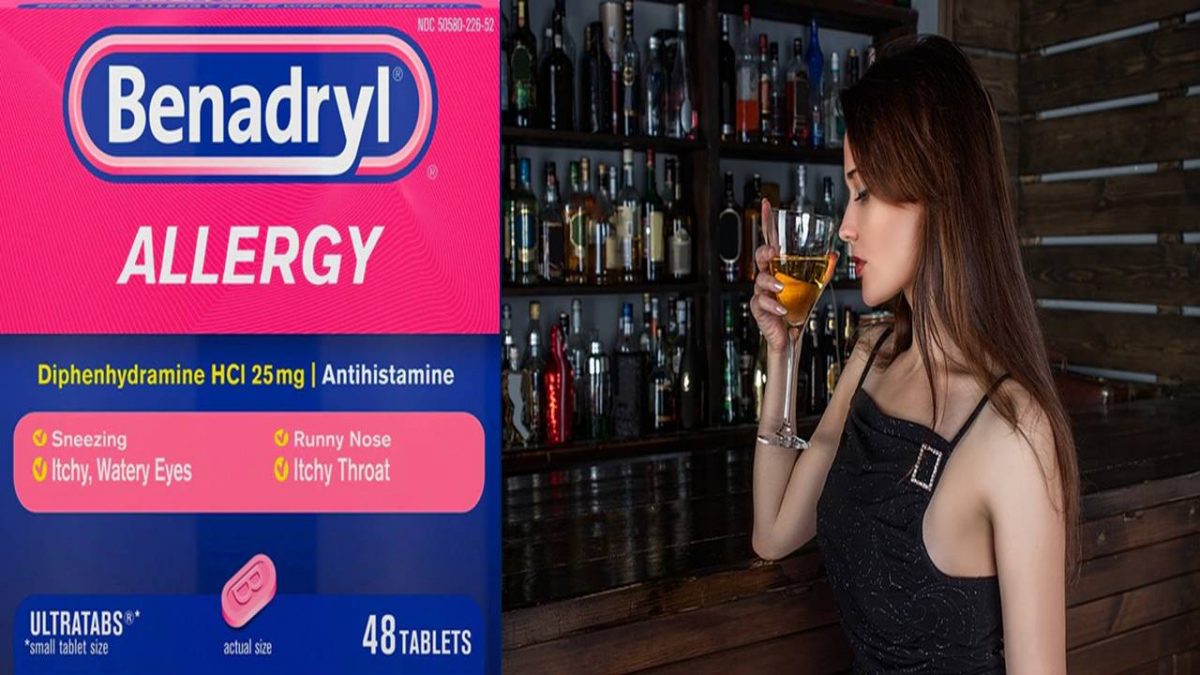Table of Contents
What is Benadryl?
Benadryl is thename of a brand for diphenhydramine, an antihistamine. Many doctors recommend Benadryl and other diphenhydramine products to treat the symptoms of allergy or hay fever. Such as runny nose, sneezing, itchy eyes, and itching in the nose or throat.
• You can also take Benadryl if you have the same symptoms because of a cold.
• Under other brand names, people sometimes take diphenhydramine to treat motion sickness and as a sleep aid.
• This over-the-counter (OTC) drug blocks the actions of histamine, a naturally occurring substance in the body that causes allergy symptoms.
• The Food and Drug Administration approved diphenhydramine in 1946 under the brand name Benadryl for the pharmaceutical company McNeil.
• McNeil Consumer Healthcare continues to market Benadryl, but generic diphenhydramine is also sold under many other brand names and is a commonly used ingredient in many combined cold and allergy products.
• Benadryl comes in gel capsules, tablets, and liquid form.
Benadryl and Alcohol – 4 Dangers of Mixing Them
Benadryl does not affect your liver as alcohol does. But both drugs act on the central nervous system, which is made up of your brain and spinal cord. That’s the actual problem.
Both Benadryl and alcohol are CNS depressants. These drugs slow down your CNS. Taking them together is dangerous because it can slow yours down to CNS much. It can cause drowsiness, sedation, and trouble doing physical and mental tasks that require attention.
In short, Benadryl and alcohol should not be used together. It is essential to know, but that it is particularly risky to use them together in some cases. These cases are when you abuse Benadryl, when you take these meds together while driving, and when you are a senior citizen.
1. Abuse
• Benadryl should not be used for any other purpose, As it is only approved to treat the allergy symptoms
• However, some people may think we can use it as a sleep-aid, as it causes drowsiness. Diphenhydramine, a generic form of Benadryl, is approved as a sleep aid. And some people may think alcohol can serve the same role as it can also make you sleepy.
• But if you want to sleep well, do not make the mistake of thinking that drinking a glass of wine and a Benadryl dose will do it. This abuse of Benadryl and alcohol can make you dizzy and prevent you from sleeping through the night.
• Benadryl can also interact negatively with sleeping pills and other medications. So, to be on the safe side, you should only use Benadryl to treat your allergy symptoms.
2. Driving Notice
• You may be aware that using machinery or driving when you are dosed with Benadryl, either alone or with alcohol. This notice is because of the risks of CNS depression from the drug.
• Benadryl can have a greater effect on a driver’s ability to remain alert than alcohol, suggest the National Highway Traffic Safety Administration. The administration also agrees that the effect of Benadryl improves with alcohol.
• We already know that it is dangerous to drive a car while drinking alcohol. In Benadryl in the mix and the behavior becomes even riskier.
3. In Elders
Mixing alcohol and Benadryl makes it harder to control body movement, too, for people of any age. But it can also be riskier for elder ones.
Impairment of motor skills, combined with the dizziness and sedation of Benadryl, can cause certain problems for older adults. For example, It may increase the risk of falls in seniors.
4. Some of the Hidden sources of alcohol
As you are aware, now that Benadryl and alcohol do not mix, you should also be aware of some of the causes of hidden alcohol that you should avoid while taking Benadryl.
Some medications may contain alcohol,such as laxatives and cough syrup. And some medicines contain alcohol upto 10 percent. These medications can interact with Benadryl. Make sure you read the labels on any drugs you take to reduce the risk of random interactions or abuse.
If one takes more than one OTC or prescription medicine or supplementing it, take it with your doctor or pharmacist. It will let you know if your other medicines contain alcohol and if it is safe to take them with Benadryl.
Ask your Doctor First
Generally, Benadryl is for short-term use. So, it is best to wait until you finish your dose before consuming alcohol. These include drinks, mouthwashes, and other medications that list alcohol as an ingredient. You should ask your doctor how long to wait after you finish taking Benadryl before you reach for a drink.
Some more safety issues before taking Benadryl
Combining Benadryl with other antihistamines, including antihistamines, which rub against your skin, fatigue may be worse.
If you are over 65, ask your doctor for other, safer alternatives to Benadryl.
Talk to your doctor before taking Benadryl and other diphenhydramine products if you have any of these conditions:
• Asthma
• Emphysema
• Chronic bronchitis or other lung problems
• Eye problems
• Difficulty urinating
• Heart disease
• High blood pressure
• Seizures
• Overactive thyroid

